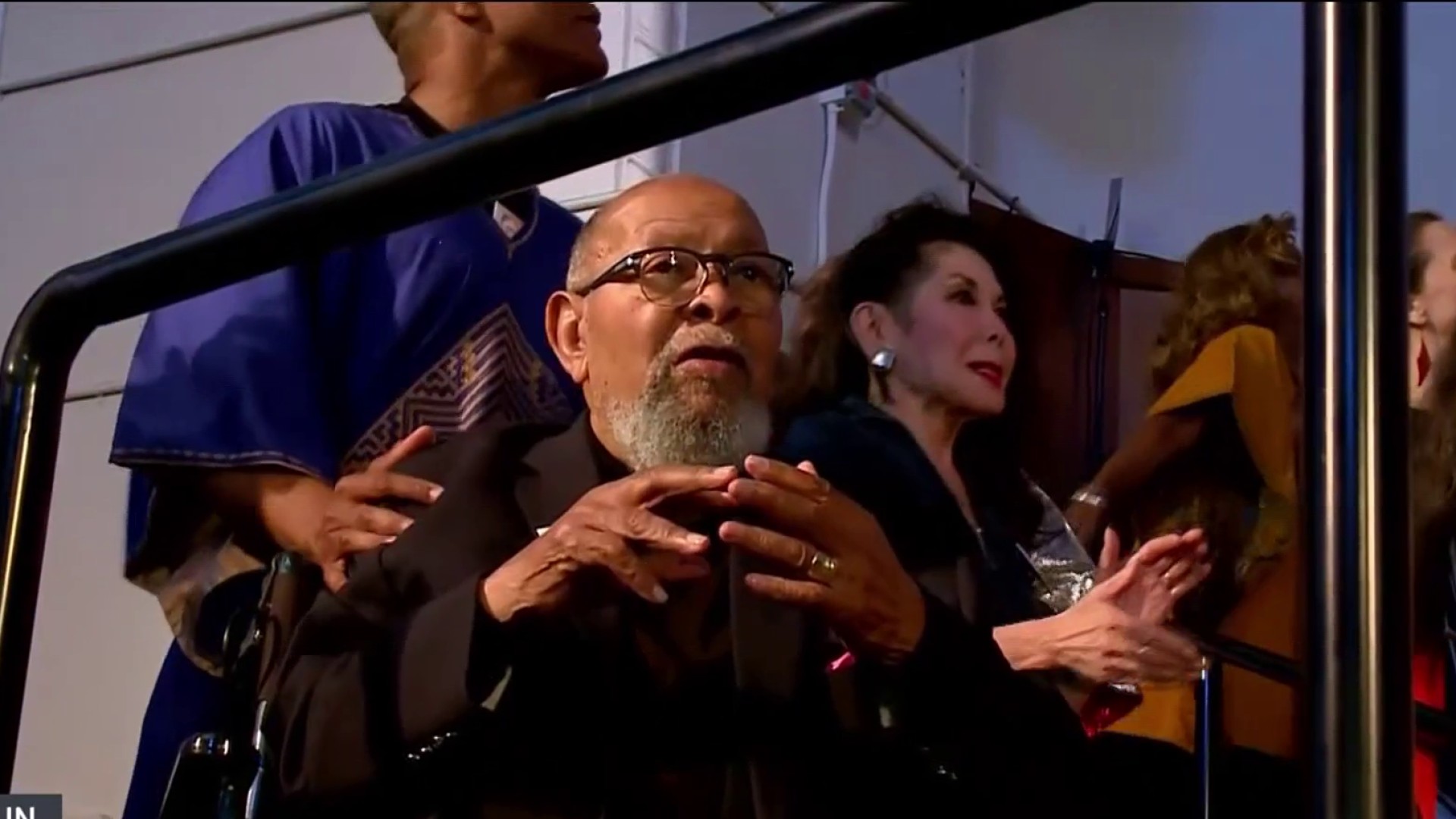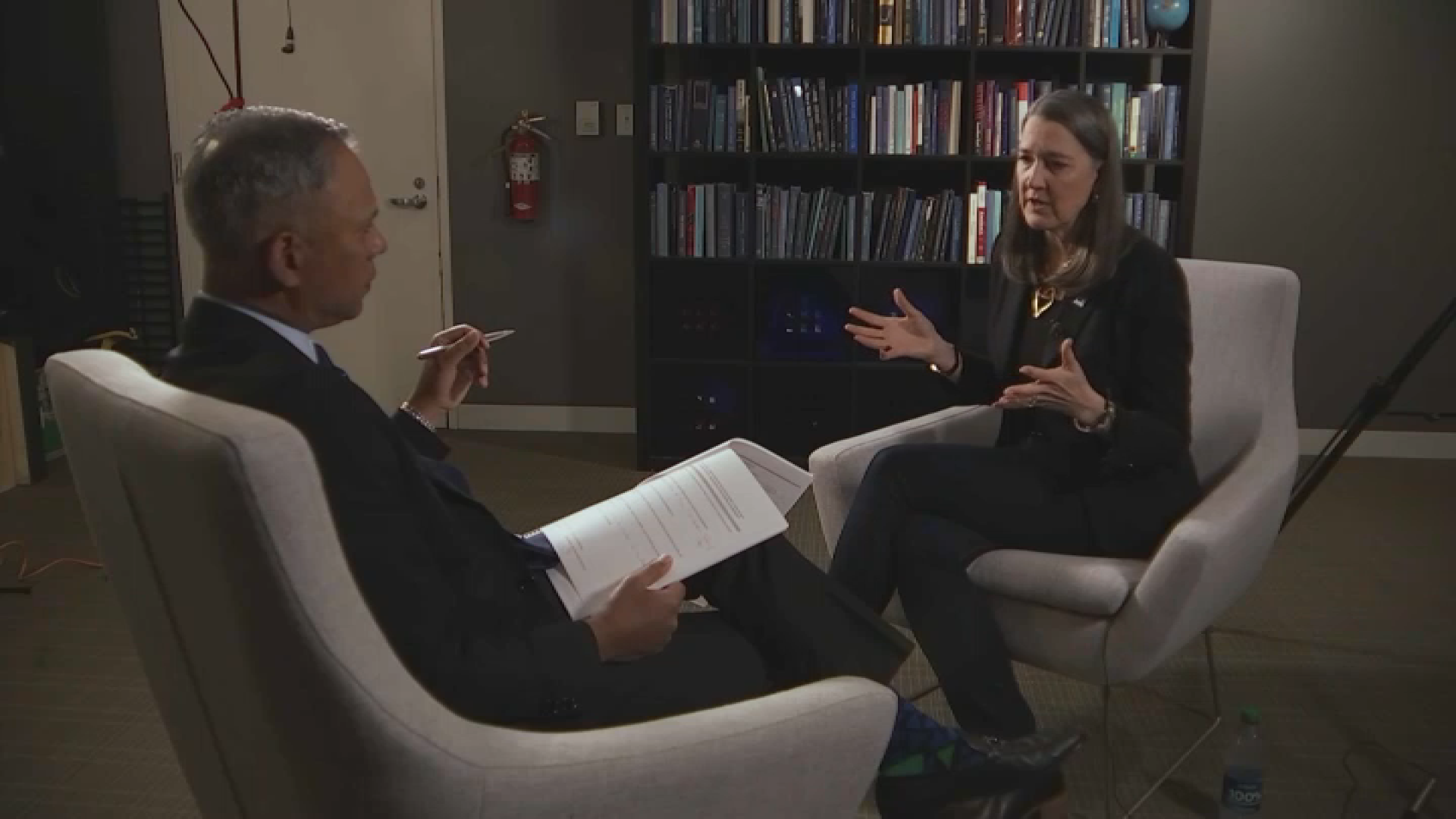After months of hard campaigning by candidates and weeks of negative ads funded by record political spending, millions of California voters are finally having their say.
The outcome of the election Tuesday will decide if residents will pay higher taxes to fix the state's persistently out-of-balance budget; change direction on the death penalty; and pass a first-in-the-nation requirement to label genetically modified foods.
No state politician has more at stake than Democratic Gov. Jerry Brown, who was elected after promising to end the state's long-running budget crisis and has personally championed a $6 billion-a-year tax increase that he says he will restore California's luster, especially for its schoolchildren.
Rejection of the tax measure would leave Brown politically wounded and facing the prospect of more cuts as the state slowly climbs from the recession. Brown was greeted by more than two dozen supporters of the tax measure, as he cast his ballot near his home in the Oakland hills Tuesday morning. He said he was optimistic the proposition would pass.
"From everything I can tell, the notion of taking a quarter of a cent sales tax and asking those who are in the top 1 percent to help us out in our time of need, I think that's a proposition that speaks for itself and I wouldn't be surprised if the outcome is more positive than most of you are probably expecting,'' Brown said.
California reached an all-time high of 18.2 million registered voters last week. The percentage of registered Republicans continued to decline, dropping below 30 percent. A Field Poll predicted that 70 percent of California's registered voters would cast ballots in Tuesday's election, with more than half voting by mail.
It would be the first time the number of mail-in ballots overtook the number of precinct ballots in a California general election. No major voting problems had been reported by early afternoon, according to Shannan Velayas, spokeswoman for the secretary of state's office.
Local
More than 3,000 Californians called the state's voting hotline Tuesday morning, mostly to ask about the location of their polling place, Velayas said. Callers also reported that a handful of the state's 24,500 polling places did not open at 7 a.m. as they were supposed to. Voters were considering 11 statewide ballot propositions, topped by Brown's tax plan, Proposition 30, and the rival Proposition 38, which would raise income taxes across the board and send the extra revenue directly to schools.
Kevin Wehr, a sociology professor at California State University, Sacramento, rode his bicycle to an elementary school to cast a "yes'' vote for Proposition 30, which he hopes will stave off further cuts to his campus.
Wehr, 40, said he could not remember a more critical tax measure. "It's really important this year because so much hinges on it in terms of education and public safety,'' he said.
"It feels like we've finally gotten to the breaking point and people see that we can't cut our way out of budget deficits.''
In San Diego, Elizabeth Marckwardt, a registered Republican, said she was not afraid of the consequences if Proposition 30 failed.
"We're taxed enough,'' said the 57-year-old nurse, who volunteered for years at her children's San Diego schools.
"We need to decrease spending, not increase taxes. We throw money into a black hole and they're still not going to be able to fix anything.''
The Field Poll estimated that 1 million fewer Californians will vote in this year's presidential contest than in 2008. Organized labor has spent $75 million so far to block business-backed Proposition 32, which would starve unions of the tens of millions of dollars they use to finance campaigns and political organizing.
Proposition 37 could become the first state law requiring manufacturers to label cereals, sodas and other products containing genetically modified ingredients. At an Orange County polling place, Russell Davis said he voted against the labeling measure.
``It's too much,'' said Davis, a 74 year-old retiree who used to work for the U.S. Department of Treasury and is a registered as an Independent. ``I'm trying to get less government, not more. It's going to be more costly, I think to do that and I don't think it's necessarily needed.''
Proposition 34 would abolish the death penalty in California, including for the 725 inmates on death row, and make life in prison without parole the toughest sentence. Chris Lear, 51, said he voted no on Proposition 34 because he feels the state should keep the death penalty.
"I think it's a deterrent,'' said Lear, an attorney from Orange County and an Army veteran who served in Iraq. "And even if it isn't a deterrent, it keeps them from breathing the same air we do.''
In an age of unbridled political spending, the campaigns for and against the 11 initiatives raised $350 million as of last month.
Changes in the state voting landscape - including independently drawn political boundaries - produced a bumper crop of competitive legislative and congressional races that will test Republican strength in a state growing increasingly Democratic.
The amount of money spent so far in House races by super PACs and other groups - at least $54 million -highlights the stakes for both major parties.



